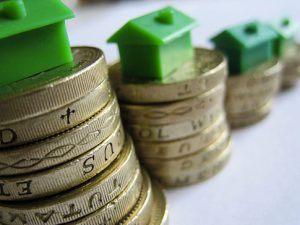 01254 774943
01254 774943  01254 774943
01254 774943 
The UK housing market is back on the up, with property prices expected to rise by up to 25% in some regions over the next five years. And whilst first-time buyers and second steppers alike are being tempted back into action by Government initiatives such as the Help to Buy scheme, there’s no doubt that buying a house is still a huge investment.
But it’s not just the price of the house you have to worry about. In addition to raising enough money to cover the deposit for your new home, there’s also stamp duty, legal fees, surveying and mortgage arrangement fees — all on top of the actual cost of moving home.
For some, these ‘extra’ costs are too much. According to the BBC, more families are cutting out the building survey from the buying process — and in turn could be costing themselves a lot more in time and hassle.
In this post, we’ll look at exactly what your chartered building surveyor will do and why it’s so important not to shun this process when you’re ready to buy your home.
Through a ‘market valuation’ report or building survey, your surveyor can help you to determine what the actual worth of the property is versus the asking price, and in turn, potentially help you to negotiate a better deal.
Depending on the type of survey you opt for, the cost of a survey could be anywhere between £250 and £1,000. But when you’re thinking about spending hundreds and thousands of pounds on a home, this is actually a relatively small price to pay considering the amount of money it could end up saving you.
People often make the mistake of assuming the surveyor of their prospective property is working on behalf of both them and the mortgage lender, but in fact, this is completely false. When you’re going through the buying process and consult a surveyor, they are working solely for you, and therefore offering advice with your best interests in mind.
Likewise, a building condition survey can help you to prevent throwing money away by identifying any structural deficits with the building that might otherwise have gone unnoticed. This is particularly important if you’re thinking of buying an older or neglected property, as common problems like damp, subsidence and wall cracks can easily go unnoticed and are costly to fix.
As Peter Bolton, of the Royal Institute of Chartered Surveyors (RICS) points out, a general lack of understanding about the home buying process is putting many at increased risk because they are not taking out independent, expert advice.”
In fact, in a survey of 1,017 buyers across the UK, the institute found that the many people who opt not to have a buildings survey carried out could be setting themselves up for an average £5,750 in remedial work on their new home.
As a rule, you should never commit to buying a property that you want to extend or renovate without first determining whether this is a possibility.
Of course, before you undertake any major work on your house you will need to obtain planning permission. However, from a feasibility point of view, most surveyors can incorporate advice about extending or converting a property within their report. This may come at an extra cost, so it’s always advisable to discuss this with your surveyor before an inspection is carried out.
However, its difficult to overstate how vital this part of the buying process the survey is in terms of saving money, time and stress, and so for best results you should always be careful to select the right survey for you. A chartered building surveyor can advise on this.
For more information about which survey you should undertake on your prospective property, or to find out more about the surveying process, call us on 01254 503200 or get in touch via the contact form.
Image used courtesy of Flickr
